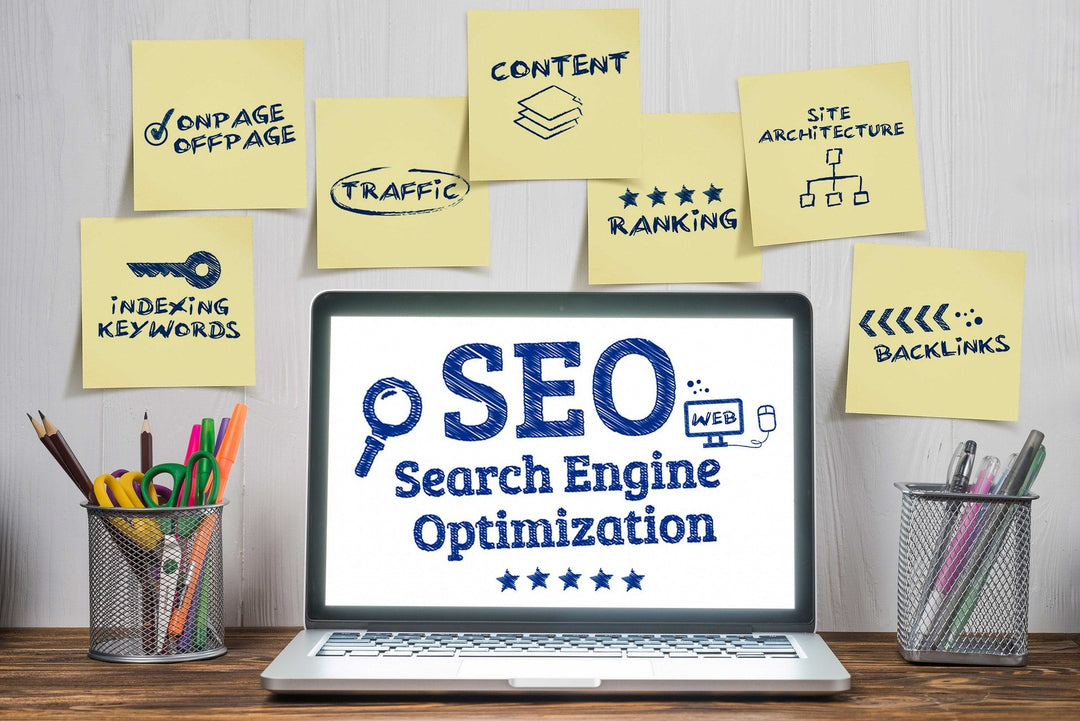Google Ads for Beginners: How to Start Seeing Results in 2023
Google Ads (formerly known as AdWords) is a platform that allows you to advertise your business on Google's search engine. With Google Ads, you can target specific keywords and demographics to reach your ideal customers. Google Ads is easy to use and can help you start seeing results quickly. With just a few dollars a day, you can start building your brand awareness and increase traffic to your website.
If you're new to Google Ads, or just need a refresher, this guide is for you! Google Ads is a powerful tool that can help you reach more customers and make more money. But it can be confusing at first, so we've put together a step-by-step guide to help you get started.

Here are the basics: Google Ads is a platform that allows you to advertise your business on Google's network of websites. You can target specific audiences based on their geographic location, interests, and other demographic information.
There are three main types of ads you can create with Google Ads: text ads, image ads, and video ads. Text ads are the most basic type of ad and usually, appear at the top or bottom of the screen on Google's websites. Image ads can be used alongside text ads or alone and typically feature a picture or graphic with a call to action such as "Click Here!" Video ads are similar to image ads but they feature moving images and sound.
Once you've created your ad, you can start targeting specific audiences through keywords and bidding strategies. Keywords allow you to specify what terms your ad will show up for on Google's network. For example, if your business is called "Pizza Palace," you might want to target the keyword "pizza." Bidding strategies allow you to set the price you're willing to pay per click on your ad. The more you're willing to pay, the more likely your ad is to show up higher in Google's search results.
Read More: ALL ABOUT PAID ADVERTISING: TOP CHANNELS, BENEFITS & IMPLEMENTATION TIPS
Google Ads also allows you to track your progress through its built-in analytics tools. Analytics allow you to see which keywords are generating traffic for your business, how many people are clicking on your ads, and how much money you're spending. This information is crucial for determining whether or not your advertising efforts are successful.
So there you have it! Now that you know the basics of Google Ads, it's time to get started!
Why Should You Use Google Ads?

As a business owner, you're always looking for ways to increase your customer base and grow your bottom line. Google Ads is one of the most effective tools available to reach new customers and grow your business. So why should you use Google Ads? Here are just a few of the benefits:
Reach a Large Audience: There are over 3 billion active internet users worldwide, and over 2 billion of them use Google search every day. That means that by using Google Ads, you have the potential to reach a huge number of people who are already interested in what you have to offer.
Target Your Ads: With Google Ads, you can target your ads to specific groups of people based on factors like their location, age, gender, interests, and even the type of device they use. This ensures that your ad reaches the right people at the right time and that you're not wasting your time and money on ads that no one will see.
Only Pay For Results: One of the best things about Google Ads is that you only pay when someone clicks on your ad. This means that you're not wasting money on ads that no one sees or clicks on. And because you can set a budget for your ad campaign, you can control how much you spend on advertising each month.
How to Get Started with Google Ads
If you're new to Google Ads, the process of getting started can seem daunting. But don't worry - with a little time and effort, you can start seeing results in no time. Here's what you need to do:
Create A Google Account
- First, you'll need to create a Google Ads account. You can do this by going to www.google.com/ads and clicking "Create an account." Once you've done this, you'll need to provide some basic information about your business, such as your business name, website, and location.
- Next, you'll need to set up your first campaign. To do this, click on the "Campaigns" tab and then click "Create a new campaign." You'll be asked to provide some basic information about your campaign, such as your budget and what type of campaign you're running (e.g., search, display, video).
Recommended Reading: GOOGLE AD STRATEGY FOR ECOMMERCE: TOP TRENDS YOU MUST USE IN 2022
Once you've created your account and launched your first campaign, you're ready to start advertising on Google!
Choose Your Goals
What do you want to achieve with your Google Ads campaign? Do you want to increase brand awareness, generate leads, or drive sales? Once you know your goals, you can create ad copy and target keywords that are relevant to your business.
Target Your Audience
When creating your Google Ads campaign, you can choose who you want to target with your ads. You can target by location, age, gender, interests, and more. The more targeted your audience is, the more likely they are to click on your ad.
Set a Budget
You don’t want to overspend on your Google Ads campaigns, so it’s important to set a budget that you’re comfortable with. One of the first things you need to do when setting up your Google Ads campaign is to decide how much you're willing to spend. This will help determine how many ads clicks you can afford, and also how often your ads will be shown.
Choose Your Keywords Carefully
When choosing keywords for your campaign, think about what potential customers might search for when looking for businesses like yours. Try to use keywords that are specific and relevant to your products or services. Also, don’t forget to add negative keywords. Negative keywords help you filter out irrelevant traffic and prevent your ads from showing up for searches that aren't relevant to your business.

Write Your Ad Copy
Your ad copy should be concise and persuasive, featuring a call to action that encourages users to click through to your website or landing page.
Test, Test, Test!
Once you've launched your campaign, it's important to keep track of how it's performing. Try different ad copy, targeting options, and budgets to see what works best for your business.
Monitor Your Results
Finally, once your campaign is up and running, it’s important to track your results so that you can make adjustments as needed. By tracking your click-through rate (CTR), cost per click (CPC), and conversion rate, you can see which parts of your campaign are working and which need improvement.
Relevant Reading: THE PROS AND CONS OF DIFFERENT GOOGLE AD CAMPAIGNS
What Are Some Tips For Success With Google Ads?
When it comes to Google Ads, there are a few best practices you should always keep in mind to create effective ads that will help you achieve your advertising goals.
- First, make sure your ads are relevant and targeted to your audience. Irrelevant ads are a waste of money and will only serve to annoy potential customers.
- Second, Always use strong calls to action in your ads. Tell people what you want them to do, whether it's click on your ad, visit your website, or make a purchase. third, take advantage of all the features and options that Google Ads offers.
There's a lot you can do to customize your ads, so take advantage of everything at your disposal to create the most effective ad possible. Following these best practices will help ensure that your Google Ads are as effective as possible and help you achieve your desired results.

Create a Successful Campaign that Helps You Scale Up
A good ad campaign starts with a clear goal in mind. What do you want your ads to achieve? Do you want to generate leads, drive sales, or increase brand awareness? Once you know your goal, you can start planning your campaign.
So, make sure your ad campaigns are well-organized and structured for success. That means creating clear budgets and timelines, setting up tracking and reporting systems, and testing different approaches before settling on a winner. By taking the time to plan and execute your campaigns carefully, you can maximize your chances of achieving your desired results.
Get in touch with our experts in eComIntegrate to optimize your Google Ad Campaign. Contact us today by filling the form
[nerdy-form:11564]





Leave a comment